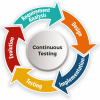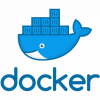continuous integration
 |
A DevOps Approach to Mobile App Development DevOps has completely transformed the mobile app development scenario, and it’s a good choice for any business looking to create an app. Let's look at what DevOps means in the context of developing a mobile app, some of the key benefits of a DevOps approach, and five crucial factors to keep in mind during development. |
|
 |
Testing in DevOps: A Slack Takeover with Lisa Crispin Thought leaders from the software community are taking over the TechWell Hub to answer questions and engage in conversations. Lisa Crispin, who's created many educational materials for software professionals, hosted this Slack takeover and discussed DevOps, test automation skills for manual testers, and starting TDD. |
|
 |
DevOps Isn’t Just about Releasing Faster When organizations start moving to DevOps, one of the first things they focus on is automation. It makes sense: Automated deployment tools are easy to explain, and implementing them usually shows value right away. But speed isn’t the only (or even the best) reason to move to DevOps and an automated release pipeline. |
|
 |
4 Reasons to Use Cloud Testing for Digital Transformation Cloud computing makes data access more reliable and efficient, with less administration effort required, so testing in the cloud can accelerate your digital transformation. This helps guarantee quality and decrease time to market. Here are four more reasons to consider cloud testing for your digital transformation. |
|
 |
Making Continuous Integration Work for You Many developers learn about using continuous integration to improve their deliverability speed and decrease the amount of effort needed to launch new features. Actually practicing continuous integration, however, is nowhere near as straightforward as it sounds. Here's how to get started in making CI work for you. |
|
 |
Continuous Testing Is Not Automation Many people confuse continuous testing with test automation. That makes sense, because you cannot do continuous testing without automated tests. But it is much more. Continuous testing has a higher-level maturity that could require a totally different way of working—but it also gives a faster path to production. |
|
 |
Implementing Continuous Delivery in the Federal Government Federal agencies generally have more regulation, slower processes, and a command-and-control style of bureaucracy. How does it work when trying to foster agility and implement a continuous delivery model? Gene Gotimer relates his experiences and challenges with encouraging a culture change in federal government. |
|
 |
How Testers Can Use Docker to Shift Left and Automate Deployments Docker has several advantages over virtual machines: It’s easier to deal with, starts up faster, and requires fewer resources. Using Docker also can give testers more confidence in their releases. Developers use the same environment that will be used in production, which streamlines code delivery and shifts QA left. |







